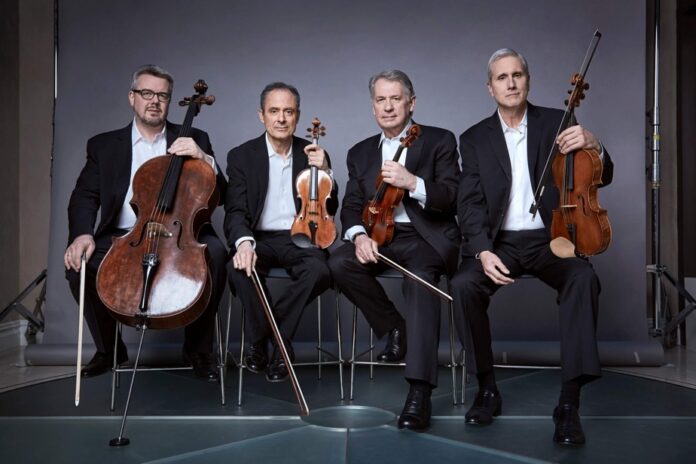“We came out of Juilliard with a ‘huge’ repertoire of two quartets by Bartók and one by Beethoven,” laughs violinist Philip Setzer, founding member of the famed Emerson Quartet, which bows out this year after nearly 50 years and a plethora of award-winning recordings. The ensemble will perform at Bourgie Hall on Tuesday evening with cellist Denis Brott (in Schubert’s String Quintet in C major, D. 956) and pianist Jan Lisiecki (in Piano Quintet No. 2 in A major , opus 81) as part of the Montreal Chamber Music Festival.
It was last year that news of the disbanding of the Emerson Quartet broke. Could it be otherwise? Formed in 1976 in New York, the star ensemble, which has essentially kept the same core since, except for cellist David Finckel, replaced in 2013 by Paul Watkins, arrived at a time when its members reached an age where the average person has been enjoying their retirement for a long time. Philip Setzer, who will continue to teach violin and chamber music at the Cleveland Institute of Music and Stony Brook University in New York, is proud to say that he will become a grandfather this summer.
If some ensembles manage with relative success to maintain excellence with different musicians, others also lose their soul. Hence the idea of drawing a line under the Emersons while they still figure in the pantheon of chamber music ensembles.
After playing at the Club musical de Québec in October (during election night…), the Emersons will give their last concert in Montreal on Tuesday, before heading to Domaine Forget on July 14 for a solo quartet program.
Their latest recital, given October 21 and 22 at Lincoln Center in New York, will cover the Schubert, a twilight masterpiece that will aptly include David Finckel, in addition to Quartet No. 13 in B. flat, opus 130, and the Grosse Fugue, opus 133, two works written in Beethoven’s later days. An event that will therefore take on a testamentary appearance.
Philip Setzer says he is happy to pass the torch to the next generation of the Escher, Calidore and other quartets, ensembles he and his colleagues helped form. But the challenges are many for them.
That said, all was not well for a fledgling chamber ensemble in the 1970s. He remembers early tours with Emerson, with each gig paying as little as $1,000 for the entire quartet, including all expenses. “Larry Dutton once said that if his mother hadn’t picked him up at the airport, he wouldn’t have made a penny” at the end of the tour, Mr. Setzer said.
The young Emersons did not go that far, however, having had the chance to receive invaluable advice from the members of the legendary Juilliard Quartet within the school of the same name, in particular from its first violin Robert Mann.
They were also able, in a more informal way, to be helped by members of the no less iconic Guarneri and Borodin quartets. Philip Setzer remembers playing Beethoven’s Opus 129 to cellist David Soyer of the Guarneri, who lived near Lawrence Dutton in New York.
“We played the first movement and he said, ‘That’s fine, but tell me what happens at the beginning.’ Gene [Drucker] starts explaining a lot of complicated things. At the end, Sauer said, “It’s not together. Why don’t you just play fair together?” The point is, sometimes you overthink it,” Setzer says with a laugh.
“We learned a lot from the recordings,” he adds. We were lucky to start at the beginning of the CD. Deutsche Grammophon wanted something new at least every year and they wanted big stuff. Naturally, there followed the complete, now classic, quartets by Bartók, Beethoven, Shostakovich and others.
“We really learned how to record, which is really different from playing live. The mics are closer, to pick up the details, because we don’t want an overall sound like we’re sitting in the back of a church. It’s like the difference, for an actor, between playing for the stage or in a film”, explains the violinist, who leaves for the rest of the world a rich “cinematography” to recharge his batteries.





